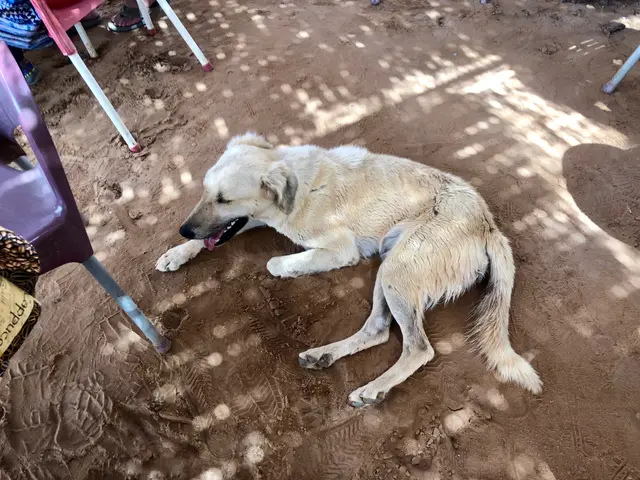Cat's Primal Instincts: Why They Hunt and Bring Home Live Prey
- by Annette Berger
- ⏱️ Reading Time - 2 min
Gift-giving felines offering live rodents to their owners explained - Cats Offering Live Mice as Gifts to their Humans
Ever found yourself witnessing your feline friend lustfully leaping and prancing around a helpless mouse? Yes, it's a common spectacle, but the question remains, why the live catch?
Cats, being natural-born hunters, showcase their unbridled primal instincts when they catch prey, much to the dismay of many a mouse, bird, or frog. However, the act of hunting is deeply ingrained in a cat's nature, with the degree of intensity depending on the cat's temperament. Some cats or tomcats are avid hunters, while others couldn't care less and seldom bring home any prey.
Why is it All About Live Prey?
If you've ever been offered a live mouse by your cat, you might have wondered - is it a sweet gesture or a sinister plot? Cat owners may suggest it's an attempt to gift their human friends something, born out of concern if they feed their feline friends regularly. But why a live one then, if a dead one would suffice?
Answers still elude us, as no cat has yet spilled the beans on their motives. But ethicalologists are on the case.
Teaching Human Companions Hunting Skills
One probable explanation is that cats don't present live prey as a gift for humans but rather to teach them hunting skills. A vital skill cats likely consider crucial for survival and raising offspring.
German and British behavioral researchers suggest that cats hunt the most when they have kittens. As their cubs grow older, it becomes common for the adult cats to present live prey to their offspring. Because the kittens will eventually need to learn to hunt and catch prey on their own.
Cats seem to transfer this behavior to the humans in their households.
"Tiergesund.de" experts posit that cats may view humans as incapable of catching mice. The cat instinctively tries to teach its human companion how to hunt. This behavior also indicates that the cat assumes the role of the head and responsible party of the household.
Some Humans Can Catch Mice - Cat's Reaction Unknown
Cats calling the shots in a household is a common occurrence reported by many a pet owner. So, if your cat or tomcat brings home a live animal next time, remember - it's for educational purposes.
Some humans do manage to catch the live mouse and release it back into the wild unscathed. The mouse would likely be overjoyed. What the cat thinks about such behavior is a mystery.
Sources: "Tiergesund.de", "Pet-Happy-com"
For more on cats and the many myths surrounding these beloved pets, check out the photo gallery.
- Cat: A natural predator that exhibits instinctual hunting behaviors.
- Prey: Small animals like mice, birds, and frogs.
- Hunting Behavior: Action of stalking, pouncing, and killing prey.
- Social Interaction and Teaching: Cats may bring live prey home to teach humans or other family members about hunting.
- Mental Stimulation: Hunting provides cats with mental exercise and satisfaction.
Insights:
- Cats are instinctual hunters with a strong drive to catch prey.
- Hunting provides cats with mental stimulation, exercise, and social interaction opportunities.
- Cats may bring live prey home as a way to teach humans about hunting or to share resources.
- Cats may also present live prey to their offspring to teach them hunting skills.
- Cats assess humans as incapable of catching mice and may try to teach human companions how to hunt.
Community policy should consider the importance of a pet-friendly living environment, ensuring that home-and-garden spaces are safe and welcoming for pets. Vocational training programs could also benefit from incorporating lessons on responsible pet care, aiming to educate individuals on proper pet care, including feeding, grooming, and teaching hunting skills if applicable to the pet species. By doing so, we can encourage better pet care and promote a lifestyle that is harmonious for both pets and their human companions.








